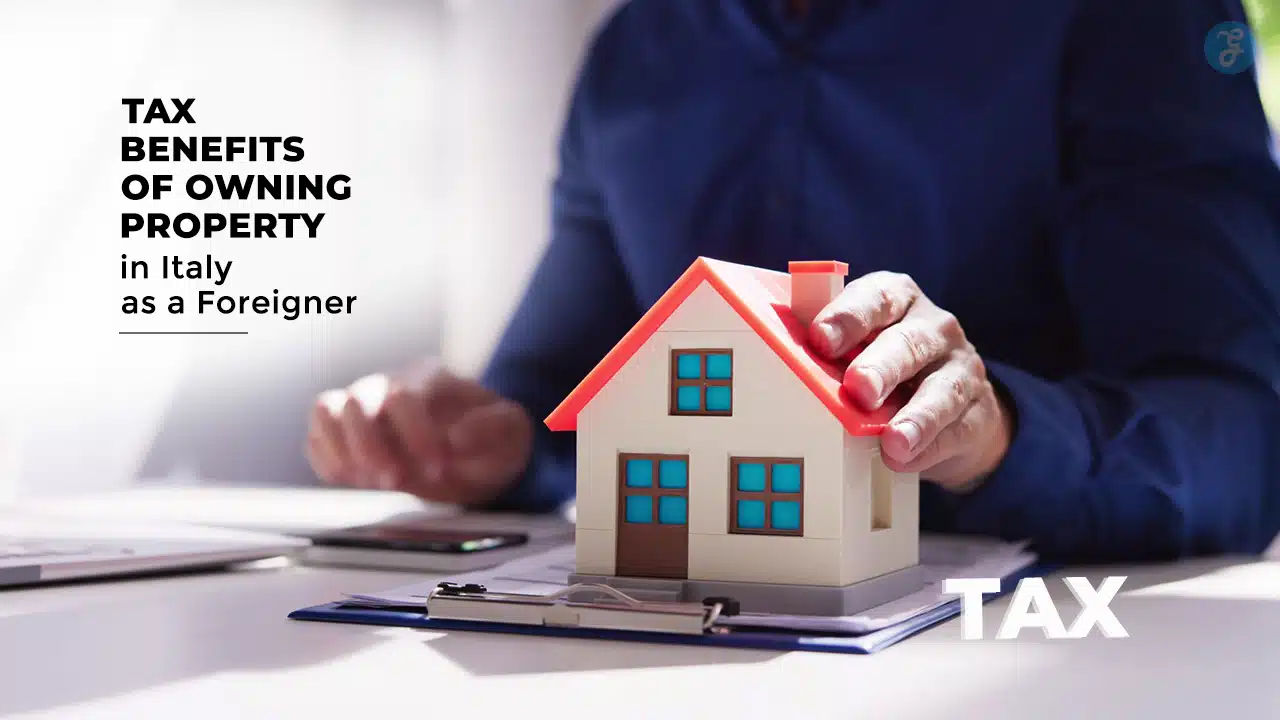Italy’s charm extends far beyond its picturesque landscapes and rich cultural heritage. For foreign investors, the country offers a unique opportunity to tap into its real estate market while enjoying significant financial advantages.
The Tax Benefits of Owning Property in Italy make it an attractive destination for property buyers, providing incentives that enhance affordability and long-term value. With proper planning and understanding, these benefits can lead to significant savings and financial growth.
This comprehensive guide explores seven key tax benefits that foreign property owners can leverage, offering actionable insights, examples, and current trends to help you make an informed investment decision.
Why Invest in Property in Italy?
Overview of Italy’s Property Market
Italy’s real estate market has consistently drawn international investors due to its affordability, stability, and high potential for returns. Whether you’re looking for a vacation home, rental property, or permanent residence, Italy’s diverse regions offer something for everyone.
Popular Investment Regions:
- Tuscany: Famous for its vineyards and rolling hills, ideal for countryside villas.
- Lombardy: A hub for luxury homes and business-centric apartments.
- Sicily: Known for affordable coastal properties and historic townhomes.
Popular Regions for Property Investment in Italy
| Region | Key Features | Typical Property Type | Average Property Price (€) |
| Tuscany | Vineyards, countryside estates | Villas, Farmhouses | 2,500–3,500/sq. meter |
| Lombardy | Business hubs, Lake Como views | Apartments, Luxury Homes | 3,500–5,000/sq. meter |
| Sicily | Coastal areas, historic towns | Beach Houses, Townhomes | 800–1,500/sq. meter |
Benefits Beyond Taxes
Investing in Italian real estate isn’t just about financial incentives. Here are additional reasons why foreign buyers are drawn to Italy:
- Cultural Enrichment: Owning property in Italy provides unparalleled access to its rich history, art, and cuisine.
- Rental Potential: High demand for short-term rentals, especially in tourist hotspots like Rome and Florence, offers steady income opportunities.
- Long-Term Value: Properties in Italy often appreciate over time, particularly in prime locations, making them a sound investment.
7 Tax Benefits of Owning Property in Italy
1. Reduced Property Purchase Tax for First-Time Buyers
Italy offers attractive tax reductions for first-time property buyers, including foreigners who intend to use the property as their primary residence.
Key Points:
- Registration tax is reduced from 9% to 2% for primary residences.
- Additional exemptions may apply for properties in rural or underdeveloped areas.
Example: A foreign buyer purchasing their first home in Italy worth €300,000 may save up to €21,000 in taxes compared to standard rates.
Tax Savings for First-Time Buyers
| Property Value (€) | Standard Rate (9%) | Reduced Rate (2%) | Tax Savings (€) |
| 200,000 | 18,000 | 4,000 | 14,000 |
| 300,000 | 27,000 | 6,000 | 21,000 |
| 500,000 | 45,000 | 10,000 | 35,000 |
2. Favorable Inheritance Tax Rates
Inheritance tax in Italy is among the lowest in Europe, making it easier to pass property to heirs without substantial financial burdens.
Key Points:
- Tax rates range from 4% to 8%, depending on the relationship between the deceased and the heir.
- There are high exemption thresholds, such as €1 million for direct descendants.
Inheritance Tax Rates in Italy
| Relationship to Deceased | Tax Rate | Exemption Threshold (€) |
| Spouse/Direct Descendants | 4% | 1,000,000 |
| Siblings | 6% | 100,000 |
| Other Relatives | 6–8% | None |
Example: If a parent leaves a property worth €900,000 to their child, the inheritance tax would be waived due to the exemption threshold.
3. Deductible Mortgage Interest
Foreign property owners in Italy can deduct mortgage interest from their taxable income, reducing their overall tax liability.
Eligibility Criteria:
- The deduction applies to primary residences.
- Taxpayers must provide documentation of the mortgage and interest payments.
Example: If you pay €5,000 annually in mortgage interest, you can deduct this amount from your taxable income, leading to significant savings.
Mortgage Interest Deduction Example
| Annual Mortgage Interest (€) | Tax Deduction Rate | Tax Savings (€) |
| 3,000 | 19% | 570 |
| 5,000 | 19% | 950 |
| 7,000 | 19% | 1,330 |
4. Capital Gains Tax Exemptions
Italy’s capital gains tax exemptions are a significant advantage for property investors. Properties held for over five years are exempt from capital gains tax upon sale.
Key Points:
- Properties sold after five years of ownership incur no capital gains tax.
- This exemption applies to both residents and non-residents.
Scenario: A property purchased for €200,000 and sold for €300,000 after five years would yield a €100,000 gain, entirely tax-free.
5. Tax Benefits for Rental Income
Italy offers a flat-tax scheme for non-resident property owners earning rental income, simplifying the tax process and reducing rates.
Key Features:
- A flat rate of 21% applies to rental income under the “Cedolare Secca” scheme.
- Exemptions and deductions may apply for maintenance expenses.
Example: If you earn €15,000 annually from renting your property, the flat tax ensures predictable and manageable tax payments.
Rental Income Tax Under Cedolare Secca
| Annual Rental Income (€) | Flat Tax Rate (21%) | Tax Payable (€) |
| 10,000 | 21% | 2,100 |
| 15,000 | 21% | 3,150 |
| 20,000 | 21% | 4,200 |
6. Energy Efficiency Incentives
Italy’s government encourages eco-friendly renovations by offering tax credits and rebates for energy efficiency improvements.
Eligible Upgrades:
- Solar panel installation.
- Upgrading heating and cooling systems.
- Insulation improvements.
Tax Benefits:
- Rebates of up to 65% for energy-efficient upgrades.
- Long-term savings on utility bills.
Energy Efficiency Tax Benefits
| Upgrade Type | Rebate Percentage | Long-Term Savings |
| Solar Panels | Up to 65% | Lower electricity costs |
| Insulation Improvements | Up to 50% | Enhanced property value |
| Efficient HVAC Systems | Up to 65% | Reduced energy usage |
7. Flat Tax for High-Net-Worth Individuals
Italy’s flat-tax regime is tailored for wealthy foreigners relocating to the country. This tax incentive simplifies the tax process and offers significant savings.
Key Features:
- A flat annual tax of €100,000 on worldwide income.
- Option to extend the benefit to family members for an additional €25,000 per person.
Example: High-net-worth individuals with diverse income streams can significantly reduce their tax burdens under this regime.
Flat Tax Scheme Overview
| Taxpayer Type | Annual Tax (€) | Additional Family Tax (€) |
| Primary Applicant | 100,000 | N/A |
| Spouse | N/A | 25,000 |
| Each Additional Member | N/A | 25,000 |
Practical Tips for Maximizing Tax Benefits
Work with a Local Tax Advisor
Hiring a tax consultant familiar with Italian regulations ensures compliance and helps you leverage all available benefits. An advisor can also guide you through the complexities of regional tax variations.
Leverage Energy Efficiency Incentives
Invest in eco-friendly renovations to reduce your tax liability and enhance your property’s long-term value. Green upgrades not only lower taxes but also improve rental income potential.
Understand Regional Tax Variations
Property taxes can vary by region. Research local tax laws to identify the best areas for investment. For instance, rural areas may offer additional incentives compared to urban centers.
Addressing Common Questions About Property Taxes in Italy
What is the average property tax rate in Italy?
Property taxes in Italy vary based on the property’s use and location. Registration taxes for primary residences are as low as 2%, while secondary homes incur higher rates.
Are foreigners eligible for tax incentives in Italy?
Yes, foreigners can access tax benefits such as reduced purchase taxes, rental income flat rates, and energy efficiency incentives.
How do I declare rental income from my Italian property?
Non-resident landlords must file an annual tax return in Italy, detailing rental income and applicable deductions.
Takeaway
The Tax Benefits of Owning Property in Italy provide compelling reasons for foreign investors to explore the Italian real estate market. From reduced purchase taxes and capital gains exemptions to incentives for energy efficiency,
Italy’s tax policies support both financial growth and sustainable living. By understanding these benefits and consulting with local experts, you can maximize your investment’s potential while enjoying all the perks of owning property in Italy.






































